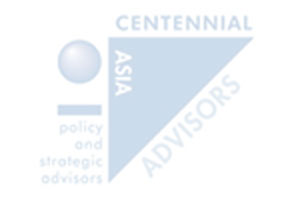Asian Insights
A summary of “Asian Insights” weekly update is published here. The full version is available through paid subscription. Please click here to register your interest. Our executive will get in touch with you.

Highlights from the CAA Weekly Table
What has changed?
- Asian economies: There are unmistakeable signs that the global tech cycle – so crucial to Asian growth – is turning around. Korea will benefit from robust fiscal support and firmer memory chip prices but any upside will be constrained by its vulnerable SME sector. Taiwan’s economy is on a tear; we think that this outperformance can be sustained. In Singapore, price pressures are likely to stay muted despite a gradual recovery in demand so monetary policy will remain unchanged come April. Bank Negara Malaysia pre-emptively front-loaded a 25bps rate cut so as to cushion the hitherto resilient economy against unfavourable global conditions. However, Bank Indonesia kept policy rates unchanged, though rate cuts loom in 1H20 as the economy underperforms. Prospects for the Thai economy are turning bleak as budgetary spending is further delayed.
How will the Wuhan virus affect Asian economic growth?
- The Wuhan flu epidemic is creating uncertainty globally but the main damage is likely to be confined to within China. Aggressive containment measures enacted by the Chinese authorities will exert a drag on growth in 1Q20.
- The negative spillovers to the other Asian economies, by way of financial market corrections, plummeting tourist flows, a weaker Chinese Yuan and faltering global business confidence, will prompt policymakers to step up to cushion the blow on growth.
- The crisis does raise serious questions on the state of governance within China, even as the direct impact on President Xi Jinping’s or the Communist Party’s standing remains negligible for the time being.
Philippines: Firing on all cylinders; 2020 will be critical for tax reforms
- The economic rebound is in full swing (4Q19: +6.6%), even though the quality of growth remains lacklustre, evinced by the sluggish momentum in private investments.
- Domestic demand remains robust and will continue to undergird the expansion moving forward. Remittances have been resilient, in spite of headwinds to global growth, while credit growth may have turned a corner after declining steadily in the face of elevated lending rates. Infrastructure spending will also lend support to the economy as well.
- Unanswered questions on Duterte’s health have buoyed his gravity-defying approval ratings in light of his enforced and prolonged absence from the public eye, despite the administration’s pro-China pivot and the controversial war on drugs.
- The year ahead will be critical for the tax reforms, ahead of the next presidential elections to be held in mid-2022. Quibbling over the second tax package (“CITIRA”) is likely to come to a head amid a tug-of-war over the rationalisation of tax incentives.

Highlights from the CAA Weekly Table
What has changed?
- Global economy: The global recovery that was taking shape before the COVID-19 outbreak hit it will now be delayed: the key to the economic outlook will be the trajectory of the virus crisis and the policy responses in China and elsewhere in Asia. Countries with more policy space will outperform.
- Asian economies: Chinese policymakers’ determination to achieve overly ambitious growth targets raises the risks of macro-financial instability. The Thai budget has finally been passed but a strong rebound is unlikely. Malaysia’s GDP growth in 4Q19 was underwhelming, prompting policy makers to telegraph a rate cut and a stimulus package. In the Philippines, wrangling over CITIRA will likely persist till late-2Q20 but other less controversial tax reforms should progress. There are tantalising hints of a recovery in India.
- Asian political risks: President Duterte scrapped the Visiting Forces Agreement (VFA) with the US, executing a pivot to China that will be fiercely resisted by the pro-America, anti-China military-political establishment within the country. Duterte remains politically dominant for now but he is making too many enemies with the clout to hit back.
China recalibrates its Belt and Road Initiative
- China has recalibrated its Belt and Road Initiative (BRI) which has quietly regained traction. The Chinese have addressed concerns over debt sustainability and shown more awareness of the financial and reputational risks it faces should BRI loans go sour. However, the BRI continues to fall short in delivering positive spillovers to local economies.
- The BRI’s advance into the Eurasian continent is being met with increasing alarm by US and European political leaders while their businesses have chafed at the lack of openness to foreign participation. The West is pushing back against China by offering promising alternatives in development finance to the Belt and Road Initiative.
Indonesia: Cause for cautious optimism with more clarity on labour reforms
- The proposed overhaul of labour laws does away with overly generous severance pay packages; improves the ease of hiring-and-firing; provides a useful balance against the authority of regional governments; and allows more flexibility in setting minimum wages.
- However, several concerns still dog the new labour law: caps on the employment of foreigners are still intact; details on setting the minimum wage for labour-intensive sectors have not been released, and the reform bill could still be stalled in the constitutional courts.
India: Setback for BJP in Delhi state elections will set off political reverberations
- The opposition Aam Aadmi Party (AAP) retained power in a landslide victory in the Delhi assembly polls. While the BJP remains dominant in Indian politics, the setback has exposed the chink in its armour, viz., its over-reliance on Modi’s star power and a dearth of charismatic local leaders to win over the electorate when local issues are more salient.
- Re-orienting the emphasis away from its controversial Hindu nationalist agenda to bread-and-butter issues is key for the BJP as it faces more state elections against formidable opposition parties in 2021. But there are few signs to suggest that the BJP will do so.
